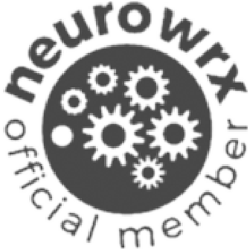Work is a place we devote so much time, energy, and where we seek to meaningfully contribute. Where we can forge life-long professional and personal connections. But when a work environment is bad, it can be excruciating. For many people both on and off the Autism spectrum, it is increasingly challenging to not only stay in certain jobs but to want to stay in them.
Public consciousness and dialogue around workplace toxicity is a relatively new development and I consider it progress that it’s gained visibility. While most of us want a healthy, happy work environment, some workplace elements can present unique challenges for Autistic adults.
I am one specific individual and my intention is neither to rebuke employers who are doing their best nor is it to represent others, though I believe many will find this piece relatable. My intention is to shed light on 5 reasons I have observed as to why keeping a job is challenging when you’re on the spectrum. Some of these reasons also highlight fundamental misunderstandings of Autism that are rooted in the deficits-based medical model.
1) Genuineness. Most of the points in this article could be said to originate from the quality of genuineness. When you are wired-up for honesty and genuineness, as I believe many on the spectrum are, being immersed for 40 hours a week in environments that mask, repress, and do not reward those qualities can quickly become frustrating and exhausting. For example, a coworker has an issue with you. You don’t know why and they won’t say why, but their unfriendly work performance negatively impacts your productivity. Or you experience group dynamics that are dysfunctional but no one openly, constructively addresses it. There are a myriad of ways disingenuousness can be experienced but when you’re one to tackle problems directly and others avoid that, it can feel alienating.
A well-loved and powerful Krishnamurti quote says: “It is no measure of health to be well-adjusted to a profoundly sick society”. In the deficits-based model of Autism, sometimes what is perceived to be part of a “communication deficit” is simply pure, direct honesty. While saying things with tact certainly matters, it makes me question the health of any group that would pathologize honesty as a “communication deficit” while not identifying habitual disingenuousness and dishonesty as even greater deficits.
2) Abuse of power. Whether it’s a power-tripping manager, a scapegoating group of colleagues, or extreme workplace gossip, abuse of power at work seems rampant. It can be blatant, covert, passive-aggressive, or systemic, but it unfortunately seems ubiquitous. Sometimes to the point where coping with relationships at work ends up taking more energy than the work itself! The most unfortunate thing is that these dynamics are unnecessary yet they can wreak havoc on professional groups and workplace mental health, putting a damper on morale and productivity.
While some people may tolerate or even thrive in such workplaces, I think that Autistic individuals tend to thrive in kind environments. This doesn’t mean a lack of constructive feedback or accountability, it simply means the overwhelming presence of a culture of kindness and positive reinforcement, where you are set-up to succeed.
In my opinion, the genuineness of individuals on the spectrum also makes abuse of power difficult to navigate. Unlike the TV series “Survivor” where contestants align with whoever has the most allies in order to survive, people on the spectrum seem to find it viscerally undesirable if not flat-out intolerable to do so primarily owing to an innately strong sense of fairness. To me, these are not only beautiful and needed qualities but also healthy ones, yet they can make it challenging to stay in work environments where power abuse or dysfunctional office politics run rampant and unchecked.
I think this points to a fundamental mischaracterization of Autism by the medical model, where Autism is understood as “lacking reciprocity”. Sometimes that may be the case (though, to be fair, neurotypical individuals can lack reciprocity too) but I see it more often as not having an interest in participating in dominance-based tactics and behaviors that seem forced, questionable, and that feed unhealthy narcissism.
3) Lack of resources for healthy emotional processing and conflict resolution. This one is closely related to genuineness. When dealing with different personalities, as is often the case at work, disagreements and conflicts are par for the course. However, in some businesses, delving into anything emotional is viewed as “unprofessional” and accountability can be virtually impossible to find. To me, this is a dehumanized and unsustainable model for long-term employment because things swept under the rug eventually become the elephant in the living room.
Sometimes processes for addressing workplace grievances are ineffective or exacerbate the problem. And, let’s be real, not everyone is always forthcoming about their transgressions which can also make conflict resolution difficult. Either way, no one should need to worry about being seen as “difficult” or a “complainer” when you have a genuine complaint but that can happen too, instead of focusing on ways to improve circumstances that make such complaints inevitable.
In my opinion, for many individuals on the spectrum, having a valid complaint and not having a genuine pathway for resolution is like shaking a seltzer bottle. It only adds pressure to the frustration and energetic drain that comes with the issues mentioned above, and makes staying in a workplace all the more challenging.
4) Time structure. Speaking of energetically draining, have you ever left a meeting feeling like your battery has gone from 100% to 25% only to remember you still have 6 hours before the work day ends? I have. The standard 8 hours a day, 5 days a week workweek, at times with little or no breaks, or one brief 30-minute lunch, can lead to burnout fast. Without regular breaks to recharge one’s battery or other implementations that help preserve one’s energy, just the way traditional work is structured in terms of time can become overwhelming and have the effect of decreasing productivity despite one’s best efforts.
If you have a finely-tuned nervous system or sensory or energetic sensitivities, it’s vitally important that you and your work environment respect them. While having an ironclad work ethic is admirable, it is also critical to remember that different people get there and produce their best output differently. There is not one cookie cutter set of metrics for success.
5) Intolerance (and its close cousin, conformity). I recently watched my first episode of the TV series “The Good Doctor” (yes, I’m about 7 years late but better late than never!). While the main character Dr. Shaun Murphy — a doctor-in-training with Autism — is not based on a real person, the cast did a fine job of portraying the closed-mindedness often encountered by unique minds.
In the show, there is mindset conformity amongst most of the medical staff. They’re set in their ways and see only certain people as capable of being doctors. Dr. Murphy’s bright observations are dismissed and he is not taken seriously most of the time (at least not in the episode I saw). While it’s a fictional show, part of the reason it was a hit is because Shaun Murphy’s central struggles are universal.
Sometimes it seems like society at large has a marketing problem in that thinking differently (a slogan that captured countless hearts as one of Apple’s key advertising taglines in the 1990s) is lauded on the surface but in reality it’s often discouraged. In fact, it sometimes becomes a source of teasing or bullying — a phenomenon that is also showcased on “The Good Doctor”.
Many work environments experience profound cognitive dissonance between the stated values of the company and the actual behaviors of the people who represent it. For Autistic individuals who sincerely seek to carry out a company’s values because they believe in them, it can feel discouraging and unsafe when there are blaring yet sanctioned contradictions between what is said and what is done.
I have encountered people who might view this sense of values as a type of rigidity that reflects “adherence to routines” (one of the medical model specifiers for Autism severity). Frankly, I find this an off-color assessment because from another, more positive perspective, it’s simply having the capacity to live according to a set of values and follow through. Ironically, it strikes me as more pathological and negatively biased to view that as “illness”. If you were to apply this quality to athletes — the quality of being able to adhere to a routine or values — it would make them outstanding.
It has been suggested (and backed-up by a 2016 Harvard research study) that everyone is on the spectrum to some degree because it is a continuum, so it should come as no surprise that these 5 points are globally experienced.
According to January 2024 U.S. Chamber of Commerce statistics, workforce participation is below pre-pandemic levels with 1.7 million Americans missing from the workforce compared to February 2020. Fewer Americans have been participating in the workforce for decades and this number is expected to decrease further in the future.
I think part of the reason for this decline is that people from all walks of life have had enough of not being treated well at work for the reasons mentioned above and many others. You can sense it, see it, hear it all around — out-dated institutions and ways of operating are falling away and new consciousnesses are brewing. It’s not happening all at once but it is underway. As such, I tend to see individuals on the spectrum as a gift, nudging workplaces to raise the bar and expand their consciousness. It is a great paradox of this time — nestled between the boom of A.I. and the detached chilliness of digitization — that the way back to work will be through our humanity and the warmth of kindness.




















